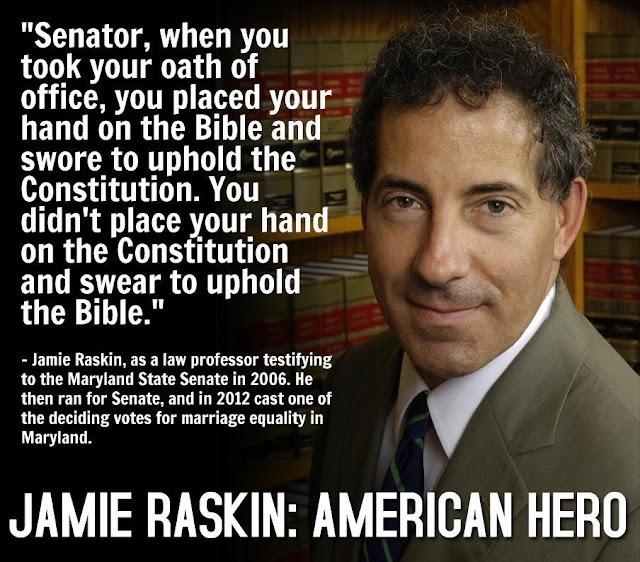You Rock
You Rock
You Rock
a sermon by Rev. J. Christy Ramsey
Audio from worship at the 10 AM Worship Service August 27, 2023
at St Peter’s Episcopal Church in Carson City, Nevada
edited from a flawless transcription made by edigitaltranscriptions all errors are mine.
Sermons also available free on iTunes
Peter, Peter, Peter. What a shaky guy to build a church on. I mean, this guy, we know about him; right? He’s either way up there or way down here. I mean, Jesus calls him “Satan.” That’s not good. Why does he pick him? And we know he’s not his favorite. You know, there is the beloved disciple. Not Peter. And now this sermon is banned in Florida. Check.
So Peter gets into trouble over and over again. He denies Jesus. He’s telling Jesus he’s doing it wrong. Later on he tells him not to do things. He’s got the Satan thing going on. And just two chapters ago, now, I don’t know how that is in real-time because, you know, they didn’t really have the timeline and all this real-time clock stuff. But two chapters ago he did the whole, you know, falling in the lake kind of thing. You know, Jesus out there in the lake. It’s a great scene, wonderful time, very, very holy, storm, Jesus. Oh, things are great. And what’s Peter do? Horn in on the action. Hey, I’m coming. I’m getting me some of this. Out in the lake he goes, and of course, boop, down he goes. You know.
Well, you know, I’m thinking it doesn’t really say. This is not Bible. This is Christy. So, you know, you may want to move to the darkened corners of the church for a nap. But I wonder how those disciples felt about him? You know? You have this person, right, this person who is absolutely wrong but very sure of it. And you know that kind of people. You know, the less they know, the surer they are, like that makes up for ignorance. I don’t know. And if you don’t have that friend, it’s you. So, you know, think about that.
So, and I can’t imagine the disciples are happy with Peter. He’s always mouthing off, getting in trouble, showing off, showboating, like he’s the best; you know. And they’re fishermen, you know, they’re not, you know, some kind of – really I’m thinking they’re a little rough-and-ready kind of guys, I’m thinking. And I’m thinking, you know, they’re out there in the storm, trying to stay in the boat. And some guy says, “Oh, I’m going to get out of the boat and go walk to Jesus.” “Peter, we’re barely keeping alive. Stay in your seat. Get down. You’re rocking the boat.” “Guys and Dolls” reference, thank you for those who picked it up. And he goes out there and sinks like…A rock. A rock. I’m thinking that’s where he started getting the name Rock. I’m thinking it wasn’t Jesus at all. It was those fun-loving guys, the disciples. Can you imagine that, Mr. Showboat sinking away? Hey, how you doing today, Rock? Ha ha. You okay? Steady there. Watch out, there’s a puddle, ha ha ha. Rock guy, huh, get a load of him. And down he goes. Hey, remember this? You know. I’m thinking they gave it to him. And in front of Jesus, behind his back, I don’t know, it don’t matter because Jesus seems to know all the stuff, no matter what goes on.
So I’m thinking that Jesus knew about that. And Jesus took that slam, that label, that putdown, and said, yeah, you’re the rock. And on this rock I’m going to build my church. Isn’t that just like Jesus? Not to argue, but to transform? To take what we thought was so bad, so awful about ourselves, our biggest failure, our greatest shame, our imperfections, everything we thought we did wrong, our lack of faith, and said, “Yeah, on that is I’m building my church.” Boy, do we need that message today. I mean, everybody’s telling us who we are. They think they know.
I mean, our own school system is joining a suit in social media because of all the negative information and labels and bullying that’s coming in over Facebook and TikTok and all the other things that are out there that our kids have to deal with that we didn’t have to that tells them they’re not good enough, they’re ugly, or not pretty enough, or they’re not as good as they are, or they have to take that picture next. Even among school systems in the city is suing for, and rightly so.
And if it isn’t social media and the kids and the things, it’s the advertisers have got our numbers down. They’re tracking your web browser. They’re watching what you watch. They’re slicing and dicing you and putting in ads to make sure that you are the most susceptible to what they’re trying to sell. In fact, they’re selling you to others, saying would you like some Episcopalians interested in some fine wines? I’m just guessing. They would put the church roll out. It’s out there.
And it’s not just this. You know, politics is coming. Oh, my gosh, do they want to tell you who they are, who you are, and what you should believe, and how it is, and what you should be outraged about, and who you should be angry with, and how this thing’s world should be viewed. We need this Jesus today that says what you think is the worst is something God can use to build the best. And no other than the contemporary philosopher, Taylor Swift, says – yeah, that’s who I read. So deal with it. That’s okay. Yeah, you’re not getting any Jeff books of the saints up here. That’s coming, so brace yourselves.
Okay. Taylor Swift says an excellent speech in her concert. And one of the – the firm quote in there is she tells her fans, a lot of these young women who are told how to be and how to look and how to feel and how to act. Taylor Swift says: “You are not somebody else’s opinion of you.” You are not somebody else’s opinion of you. Boy, good old Simon needed to hear that when they were all calling him the Rock. Good old Taylor Swift.
Who are you? Who are you? I’ve come to the conclusion not everybody loves and memorizes movies as well as I do, and we’re working on that. But until then, there’s a movie called “Secondhand Lions.” Robert Duvall we’re going to see in a minute. And somebody – and he’s having a bad day. And somebody asks him, “Who do you think you are, old man?” Oh, don’t do that to Robert, even on a good day. “Who do you think you are, old man?” And this is Hub McCann’s answer. “That’s who I am.”
I remember having a spirited discussion with one of the patriarchs of the church about what picture should you put in an obituary? The dashing young soldier going off to war 40 years ago? Or the weathered, seasoned, bald man the last time we saw him? Who are you?
My father-in-law was Bruce Speegle. Bruce Speegle was the district engineer for PennDOT. They have hills there. They say mountains, but I will not insult you by saying they were mountains. But they have ups and downs. And the ups and downs, back in the day, came up with the idea, have you seen those runaway truck ramps, you know, where they have the little thing, and the big old gravel, and the pickup – the pickup. The semi is supposed to steer off there when they don’t have brakes and go into the gravel, and the gravel is supposed – this was controversial. This wasn’t going to work.
Now, Bruce was a district engineer. Wasn’t a truck driver. Didn’t drive a semi. And Bruce put one in. And oh, the things they talked about. Now, Bruce was a man of few words. On my wedding day, I spent the whole day with him, and he had plenty of opportunities to tell me what’s what and who’s for and whatever. And had every reason to because at that point this guy, most unlikely to be a minister, was going to seminary. He might have had some words.
But we had the rehearsal, and was doing like an hour to get the wedding done, rehearsal, and up and down. We had a family dinner, a lunch, very nice lunch, family lunch. We’re all sitting at the table, meeting everybody. And we went to the hotel, we changed for the wedding, all in the same room. We had the wedding, of course. And he was there. And then afterwards we had a reception into the evening. That whole time Bruce said two words to me: “Have fun.” That was Bruce.
Back to the runaway truck ramp. It wasn’t going to work. Boondoggle. Waste of time. Not say safe, ba da da, all that stuff. Bruce got it built, invited the press to a demonstration. Got the truck at the top of the hill. Got the brakes disabled. And when it was coming down the hill, Bruce was in the passenger seat. To this day, my mother-in-law is still angry. That’s who Bruce was. He didn’t have to say anything. He was in that truck. Down they went. And of course it worked. Bruce was an engineer. He did the math. He didn’t have to talk. That’s who he was.
There’s a movie out called “Barbie.” Perhaps you’ve heard of it. As I understand it, I’ve been told I must go see it by my daughter, who’s in her 30s. I don’t know when she became my parent, but okay. In it I understand Barbie wonders what she was made for. The ideals of – they play with the ideas of Barbie as perfection and success and rich and happy all the time. And suddenly she’s not.
I’d like to close with the song from the movie, from Billy Eilish, and close with the lyrics to “What Was I Made For?” And I hope you consider that, as well.






 Christy Ramsey
Christy Ramsey



